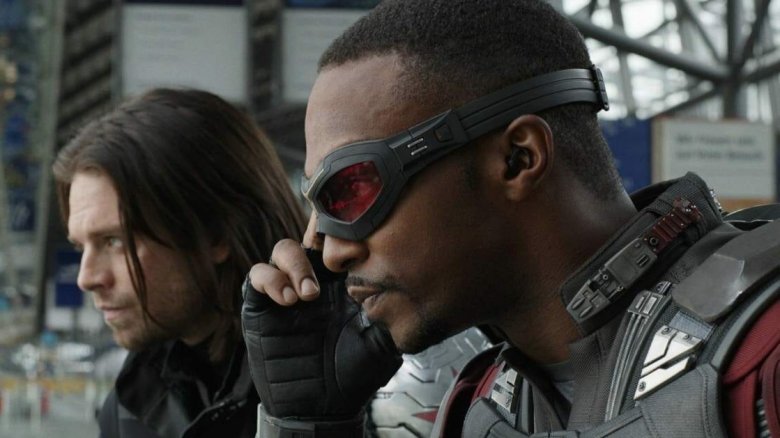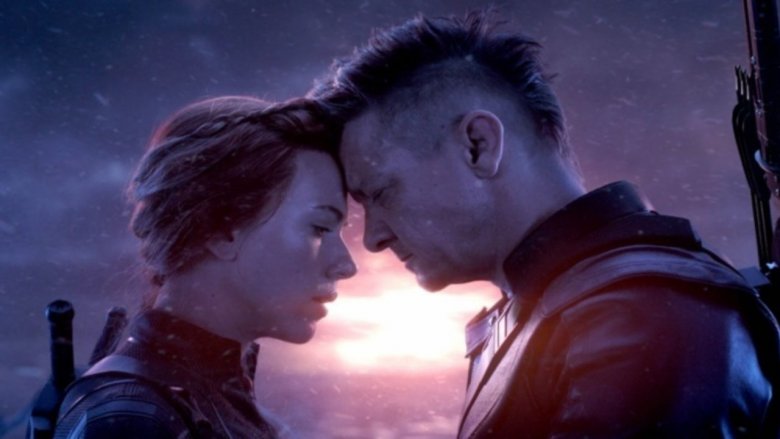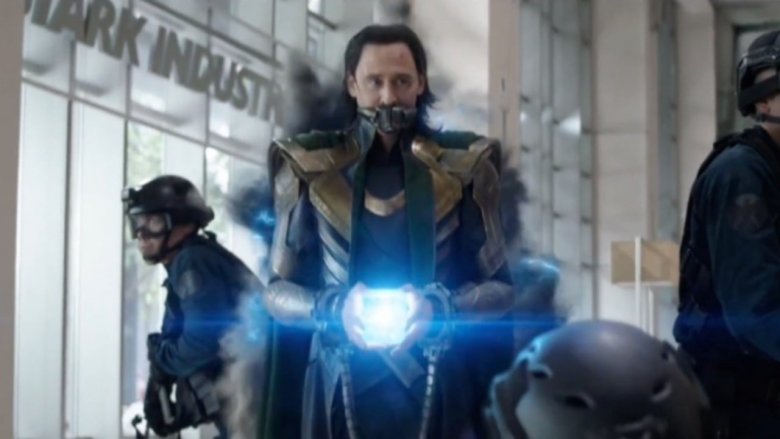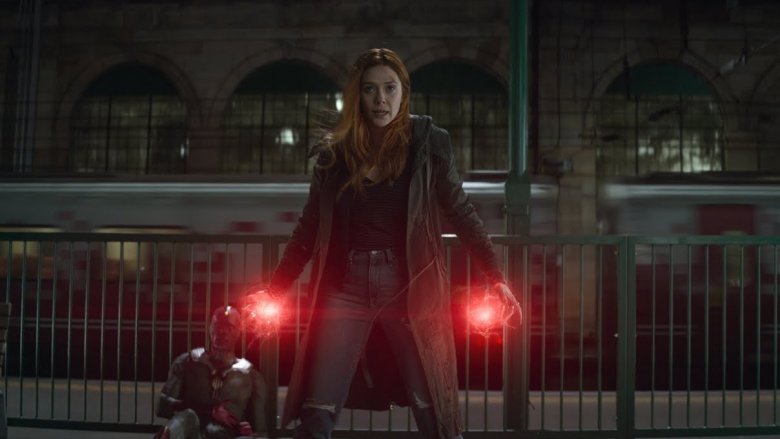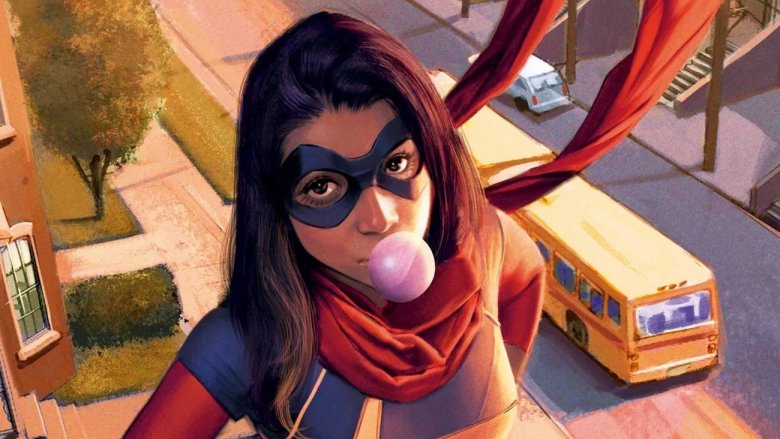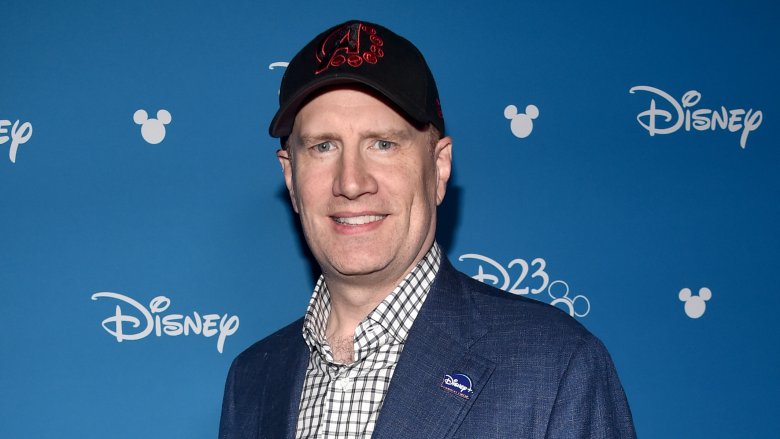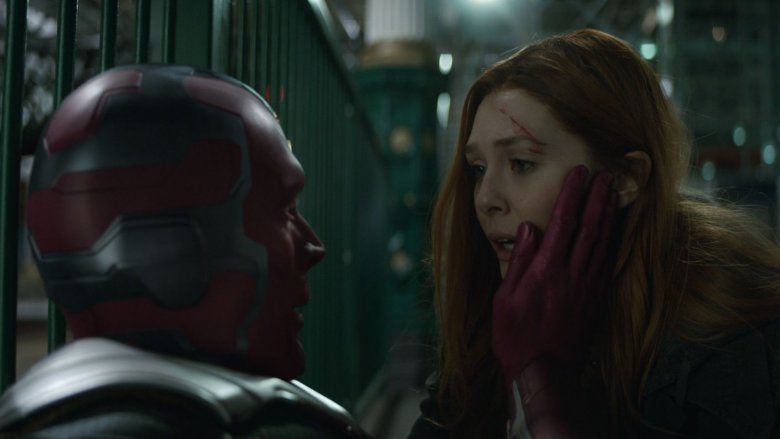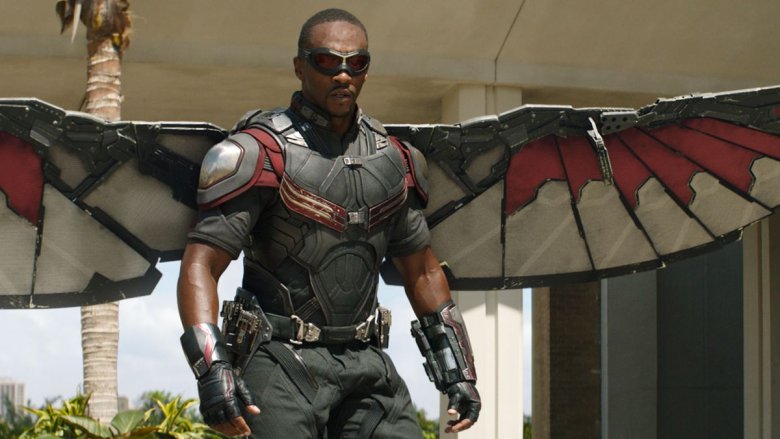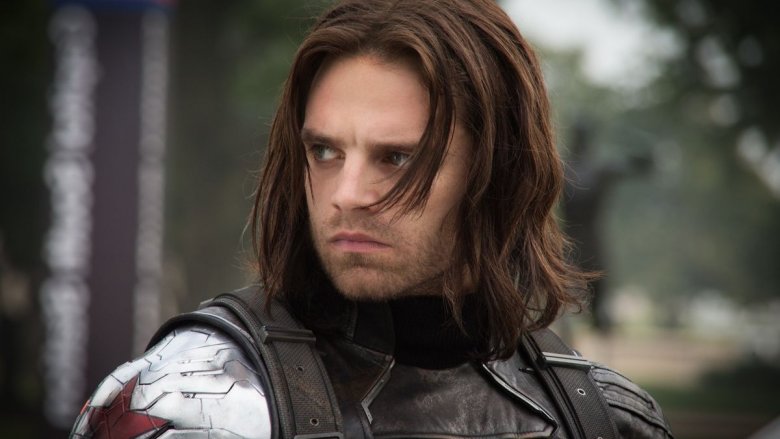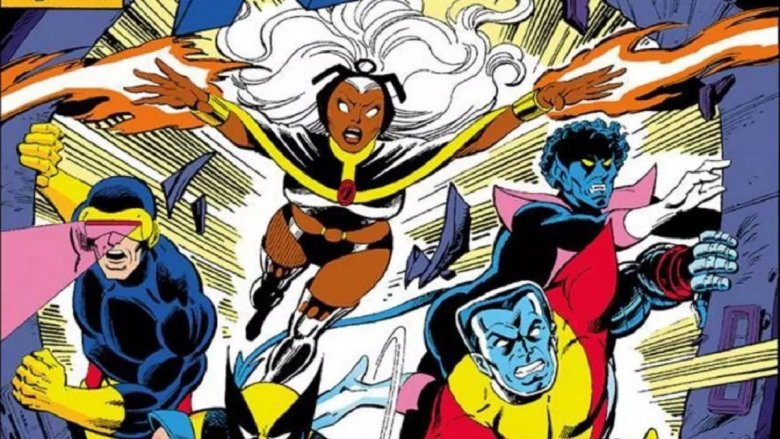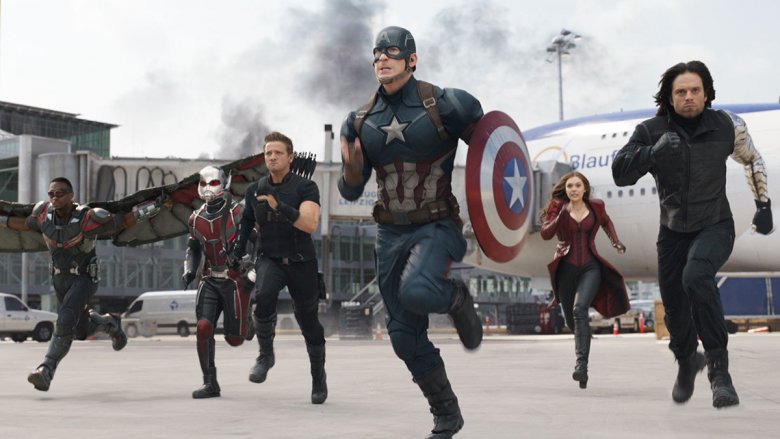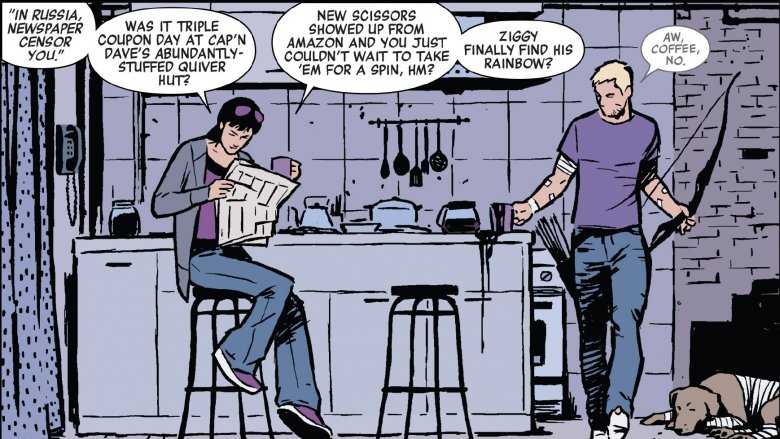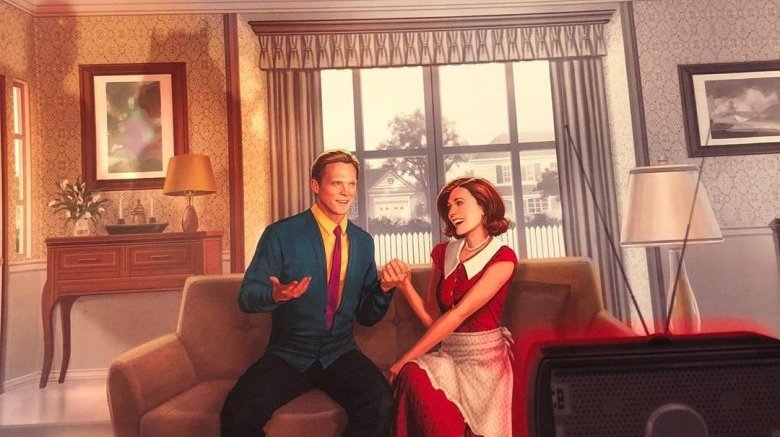Why Marvel's Disney+ Shows Will Blow You Away
The Marvel Cinematic Universe kicked off in 2008 with Iron Man, and the franchise spent 11 years building a world of superheroes who would occasionally team up in unprecedented ensemble films to battle larger-than-life villains. These were the first movies to even attempt to mirror the tangled web of characters and storylines from the comics, and they were incredibly successful at doing so.
However, up until the end of Phase Three, this sort of complex, multi-faceted storytelling had largely been limited to the big screen. While there were numerous Marvel TV shows on cable and network TV, along with streaming services like Netflix and Hulu, they all felt pretty tangential to the larger-scale stories being told in the films. But this is all due to change with Marvel's upcoming slate of Disney+ shows, which looks to shake up the way superhero stories can be told on-screen yet again. Below, we dig into the ways Marvel's Disney+ shows should be different than previous TV offerings, and why all these exciting series are going to blow you away.
The Disney+ Marvel shows are officially part of Phase Four
Beginning with Agents of S.H.I.E.L.D. in 2013, which centered Clark Gregg's character from The Avengers, there have been a number of television shows that have spun off of characters or events from the movies, making them officially part of the MCU. However, even the Marvel shows with the closest ties to the primary MCU — such as Agent Carter, which focused on Hayley Atwell's popular character from Captain America: The First Avenger — still weren't considered part of Marvel's "phases," the term used to delineate which films comprise the major storytelling arcs that connect the whole franchise together.
Marvel has had three "phases" so far. The first began with Iron Man and concluded with The Avengers, the second spanned from Iron Man 3 to Ant-Man, and included 2015's Avengers: Age of Ultron, and the third began with Captain America: Civil War and concluded with Spider-Man: Far From Home, which served as a coda to the record-shattering Avengers: Endgame. However, Phase Four will include not only five new films but also five new television shows, making this the first time ever that TV shows will be considered an integral part of the stories being told by the films.
The Disney+ Marvel shows will directly affect the MCU
The longer the MCU has existed, the more common it's become for each individual film to have repercussions that ripple out into other films and storylines. It's almost expected by now that characters will cross over from one branch of the MCU to another, such as Doctor Strange (Benedict Cumberbatch) popping up in Thor: Ragnarok or Falcon (Anthony Mackie) appearing in Ant-Man. Additionally, storytelling elements introduced in one seemingly isolated film — such as the Aether in Thor: The Dark World — can wind up having a tremendous impact on a different film several years down the road.
Until now, the TV shows have been exempt from this sort of intertwined storytelling. While the events of the films would often be addressed in the shows, such as the ending of Captain America: The Winter Soldier directly impacting the storyline of Agents of S.H.I.E.L.D., it never went the other way. No matter how big the threats or how extensive the damage was in a TV series, those characters and plot lines were almost never mentioned in the movies. But this will all change with the Disney+ shows, which "will directly affect the rest of the Marvel Cinematic Universe in some very real ways," according to Captain Marvel producer Mary Livanos. Not only does this open up some intriguing storytelling possibilities for the MCU as a whole, but it will lend a weight and significance to the Disney+ shows that previous Marvel TV series never had.
The shows will star major characters from the movies
Marvel's Disney+ shows won't be the first television series to pull in characters who were first seen on the big screen. Peggy Carter and Phil Coulson in Agent Carter and Agents of S.H.I.E.L.D. are the most obvious examples of film characters making the leap to television, but Nick Fury (Samuel L. Jackson), Maria Hill (Cobie Smulders), Lady Sif (Jaime Alexander), and Howard Stark (Dominic Cooper) have also all appeared in Marvel's TV series.
But pulling in a supporting film character for a guest arc on a TV series is a far cry from what Marvel will be doing with its inaugural crop of Disney+ shows, which will center not on side characters from the films, but on actual Avengers like Hawkeye, Scarlet Witch, and the Winter Soldier. (Plus, we're also getting one Revenger.) Recognizable faces from the MCU aren't an occasional perk for the Disney+ series. Instead, they're the main attraction. By building series around characters who've already had significant arcs play out over multiple films, the first five Disney+ shows will not only be able to jump right into meaty storylines, skipping over introductions and origin stories, but they'll also be able to draw on the audience's existing attachment to these characters instead of needing to take time to build up affection, making it easier to emotionally invest from the very first episode.
New characters could transition into the films
When discussing the Disney+ Marvel shows, Marvel Studios president and MCU mastermind Kevin Feige told Screen Rant, "We want to do something that's going to stand right alongside the MCU films and will be completely intertwined, and the story and the characters will go back and forth between Disney+ programming and the films." This is exciting for a number of reasons. Not only can we look forward to storylines that will jump between the series and the films, making it a lot more rewarding to be a fan of both, but the Disney+ shows are already set to introduce some popular Marvel Comics characters who fans have long wanted to see appear on the big screen.
Already announced are Kate Bishop, who will appear alongside Clint Barton in Hawkeye, Monica Rambeau (Teyonah Parris) a.k.a. Spectrum, who will co-star in WandaVision, and then there are brand new characters like Ms. Marvel, She-Hulk, and Moon Knight, who will each headline their own series. That's sure to be just the tip of the iceberg when it comes to who Marvel may use their Disney+ shows to introduce from their expansive roster of comics characters. And while heroes introduced on previous Marvel shows have stayed confined to the small screen, it seems as though the Disney+ characters will face no such constraints, and will be free — and even expected — to eventually transition to the movies.
The Disney+ Marvel shows will be produced by Marvel Studios
In the past, when Marvel shows have been made, they've been produced by Marvel Television and overseen by executive producer Jeph Loeb, who's headed up Marvel's TV branch since 2010. While some of these shows, such as Legion and Jessica Jones, were both popular among audiences and well-received by critics, they've all existed mostly independently from the films, which are all produced by Marvel Studios and overseen by Kevin Feige. With two different captains at the helm of their respective ships, Marvel Television and Marvel Studios each charted their own courses, which occasionally ran parallel to one another but rarely intersected.
With the arrival of the Disney+ shows, however, all that changes. Now, Kevin Feige is calling the shots for both the films and the TV series that make up Phase Four and beyond. This means that instead of an independent movieverse and a mostly unrelated TV world, both the shows and the series will be folded into a single cohesive narrative for the first time. If the previous films are any indication, this means we can likely expect characters from one show or film to unexpectedly pop up in another, storylines to begin in one property and finish in a different one, and for clues for what's coming next in the MCU to be sprinkled throughout everything.
The series can explore storylines that are too complex for the films
With the arrival of the Disney+ Marvel shows, beginning in the fall of 2020 with The Falcon and the Winter Soldier, Kevin Feige has promised "new and continuing stories" which "will be on the same level of quality that you've come to expect from Marvel Studios." Further, Feige has said that "these will be major storylines set in the MCU with ramifications that will be felt both through the other Disney+ series we're producing and our features on the big screen."
From the way Feige is speaking, it sounds as though Marvel Studios will be taking the exact same approach to their Disney+ shows as they have with their MCU films, weaving them all around one overarching central narrative. However, while Marvel's films have to get through their storylines in a little over two hours each, the shows will have six or more hours in which to explore their stories. That means that the TV series can take the time to delve into some of the longer or more complex narratives that may have been impossible to condense into a single film — like the relationship between Wanda Maximoff and the Vision, for example — and can afford to finally devote a significant amount of time to developing characters who've previously had to make the most of a handful of scenes spread across multiple films.
The shows will feel like six-hour movies
Unlike previous Marvel TV series, which, like most television shows, have been fairly episodic in nature, Elizabeth Olsen and Paul Bettany told MTV that WandaVision will be more like a six-hour movie than a conventional TV series. "It's so avant-garde and weird and messed up, and then moves seamlessly into more familiar territory," Bettany said, singing the praises of Kevin Feige's imaginative pitch for WandaVision. "As the scripts come in, the work is so extraordinary."
With the other live-action Disney+ series also reported to come in at six to eight episodes per season (with the exception of What If...?, which will have 23 episodes, one for each movie in the first three phases of the MCU) and the TV series said to directly impact the world of the films, it seems safe to assume that WandaVision won't be the only show that feels more like a movie. If you're trying to picture what a six-hour MCU story might look like, just think about all the ground that gets covered between Avengers: Infinity War and Avengers: Endgame. Now, imagine that instead of two three-hour movies, the Infinity Saga was one six-hour show, and marvel at the possibilities.
The Disney+ Marvel series will explore 'big, meaty questions'
Already, the showrunners for the Disney+ series are excited about the possibilities that a new medium will allow them to explore. "We have these big, meaty questions that we get to spend more than two and a half hours exploring," said Jac Schaeffer, the showrunner for WandaVision. "So that's been the work, is making it exciting and intriguing and head-turning at every moment."
Captain Marvel producer Mary Livanos seemed to agree with Schaeffer on the expansive scope of the Disney+ shows, telling ComicBook.com that the television format will allow Marvel's shows to tell a "full comic book event" or a complete "multi-issue story." Typically in comics, one storyline following a single central character or group can play out over multiple issues, each one filled with twists, surprises, and plenty of action and emotion. It sounds as though the Marvel team is eager to bring this sort of focused, extended storytelling to the MCU, with the Disney+ shows allowing them to present satisfying, character-driven stories in their entirety instead of parceled out one piece at a time over the course of several movies.
They may be the perfect way to introduce highly anticipated characters
Marvel has already announced that it will be using the Disney+ television format to bring some fan favorites into the MCU fold, with upcoming series Ms. Marvel, She-Hulk, and Moon Knight. However, while these characters may have worked equally well no matter where they were first introduced, there are some other characters from Marvel Comics who may actually fare better on TV than film for their initial introduction.
For example, a large ensemble with a complex origin story may be a struggle to cram into two hours. A show like that could significantly benefit from the additional breathing room of TV. Teams such as the X-Men and the Fantastic Four have previously faltered under the two-hour time constraint of a film, with even the best X-Men films underserving some of the comics' most popular characters. But with the Disney+ series set to seamlessly transition characters from film to TV, and vice versa, the streaming platform may be the perfect place for some of Marvel's most iconic teams to make their debut before jumping into the films. It may also be exactly the right venue to introduce individual members of a group over several different shows before teaming them up for a film or a Disney+ series of their own, which is what they very well could be doing with the Young Avengers.
They may decrease the time between major events
The first two phases of the MCU consisted of six films each, while the third contained a whopping 11, three of which were "event" films which brought a wide group of characters together from across multiple solo films. This has meant that Marvel has typically been spending between eight to ten hours on stories bridging the gaps between event films, introducing and developing characters, laying plot groundwork, and tightening the links between its multiple ongoing storylines.
Previously, it has taken Marvel around three to four years to get through these ten hours needed to set up an event film, due to the limitations of only releasing two to three movies per year. But with the introduction of the Disney+ shows, Marvel will now be able to get through 30 or more hours of story every year, as opposed to its previous four to six. Such a massive increase in how much storytelling Marvel can fit into a single year may allow them to lay the groundwork for bigger stories even faster. Now, instead of ten years building up to the next Endgame-level event, we may get there in half the time.
Some of Marvel's best comics are better suited for TV
Marvel's comics truly run the gamut from giant, action-filled storylines with world-ending stakes to quieter runs that are more focused on the internal lives of its characters than explosive abilities and dastardly villains. While the former category lends itself well to big screen adaptations, the latter is harder to turn into a traditional "superhero movie," shutting out some of Marvel's most acclaimed runs.
Comics like Matt Fraction's Hawkeye, Tom King's The Vision, and G. Willow Wilson's Ms. Marvel are among the most widely beloved of Marvel's recent runs, but all would have trouble adhering to the two-hour format and obligatory action emphasis of the existing MCU formula. These storylines all feature a lot more introspection and interpersonal conflict than major world-ending confrontations, and they could benefit from the space and freedom of TV.
While Marvel has yet to confirm exactly which storylines they'll be using as inspiration for their Hawkeye, WandaVision, and Ms. Marvel TV series, all signs point to the aforementioned three runs being major influences for the shows, which likely wouldn't have been the case if these characters were all getting movies instead of TV shows.
The Disney+ Marvel shows will explore entertaining new genres
Although Marvel Studios has been dabbling in a number of genres for quite some time — touting Captain America: The Winter Soldier as a political thriller, Ant-Man as a heist film, Spider-Man: Homecoming as a John Hughes-esque high school comedy, and the upcoming Doctor Strange in the Multiverse of Madness as a horror film — there are still some genres Marvel has yet to explore. Television opens up the realm of possibilities, not just for which characters Marvel can introduce and which stories they can tell, but how they can tell them.
For example, WandaVision will purportedly be a "sitcom," a genre which only exists in television. The teaser shown at D23 seemed to indicate that the series would take significant influence from The Dick Van Dyke Show, one of the most classic examples of the sitcom format. And while we don't yet know how long each episode of What If...? will be, its animated format and self-contained, episodic nature calls to mind the animated shows of the '80s and '90s, including Marvel's own X-Men: The Animated Series, which had its characters facing a different threat nearly every week and largely resisted serialization, presenting its storylines in two- to four-episode arcs that rarely spilled out into the rest of the series.
There's no telling what other genres Marvel will be able to explore through their Disney+ series — even the ones that have already been announced are not genres anyone would've anticipated a couple years ago — but if the first three phases of the MCU are any indication, we've only just begun to scratch the surface.
